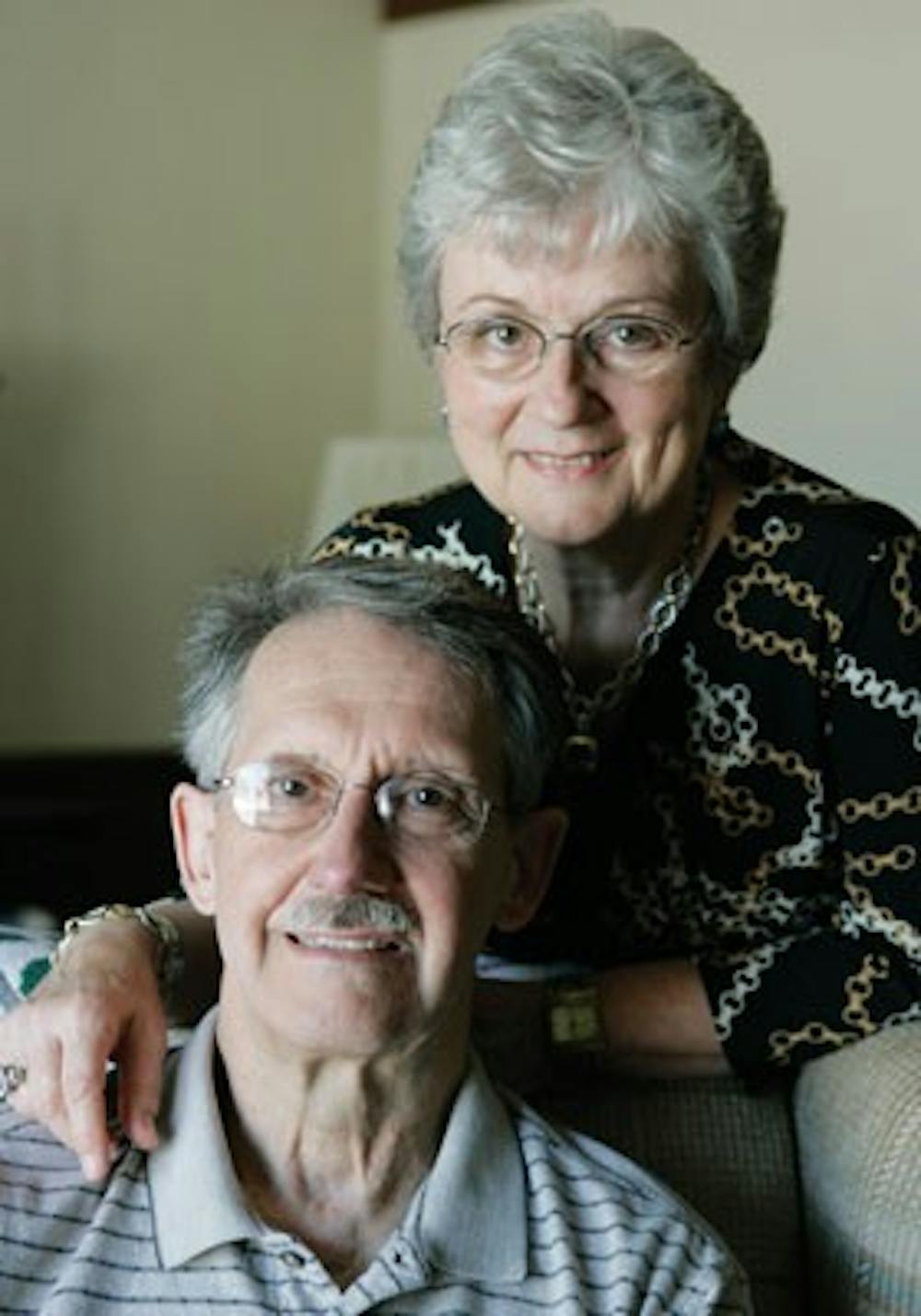INDIANAPOLIS – First, Don Bundy had trouble remembering the names of his grandchildren. Now, the 69-year-old Alzheimer’s patient forgets what a dinner plate is and relies on his wife, Carolyn, to remember his age.\nSince doctors diagnosed Bundy a few years ago, he’s volunteered for several drug studies and brain scans. He knows they’ll help science – but probably not him.\n“I think it’s an opportunity to help others have a better life, really,” the Indianapolis resident said.\nBundy’s efforts are part of a push by more than a dozen drug makers to crack an Alzheimer’s market loaded with blockbuster potential for the company that develops a breakthrough treatment.\nThe potential market alone is staggering: more than 26 million people diagnosed worldwide, a figure that is expected to quadruple by 2050. An effective treatment could easily surpass $1 billion in annual sales, said Joe Tooley, an analyst with A.G. Edwards & Sons.\nBut first a treatment has to get to market.\nWyeth has 23 drug compounds in various stages of development. Fellow drug maker Eli Lilly and Co. has started patient testing on a couple more.\nIndianapolis-based Lilly also is working with GE Healthcare on diagnostic testing that tells the difference between Alzheimer’s and other forms of dementia, which could ensure proper treatment.\n“I think in the course of our lifetime that we’ll see a significant change in the way we understand Alzheimer’s disease and the way we treat and possibly even prevent it,” said Niles Frantz, a spokesman for the Chicago-based Alzheimer’s Association.\nAlzheimer’s is an irreversible, fatal disease. It involves the formation of lesions in the brain called plaques and tangles. Scientists believe they poison nerve cells and interfere with the ability to learn and reason.\nCarolyn Bundy thinks the disease began developing in her husband’s brain around the year 2000, when he started forgetting names and struggling with his job as a quality control manager at a food processing center.\nThen he began confusing simple tasks. She’d ask him to go to the garage for a screwdriver. He’d come back with a hammer. Now, she has to tell him over and over how to wash his hands or brush his teeth.\n“What he can do today, he might not be able to do tomorrow,” she said. “But something he can’t do today he might have no problem with tomorrow.\n“It’s a moving target.”\nAvailable treatments can ease symptoms of the disease, but none target its roots.\n“There’s just a huge unmet need for drugs to treat (Alzheimer’s),” said Brandon Troegle, a Morningstar analyst who covers Lilly. “Right now, there’s obviously no cures or anything that even stops the progression.”\nNeither Lilly nor Wyeth has an Alzheimer’s treatment on \nthe market.\nLilly is developing a drug that might attack the disease instead of the symptoms. The unnamed drug slows the growth of a sticky protein that serves as a building block for plaque. Lilly wants to find out whether it slows Alzheimer’s as well.\nThe company plans to start testing on 1,500 patients early next year.\n“The symptoms of Alzheimer’s disease gradually worsen over time,” said Dr. Eric Siemers, a Lilly researcher. “What we would expect to see is the rate of decline in those symptoms is slowed, and so people are milder for a longer period of time.”\nAnother Lilly drug in an earlier stage of development could clear this protein from the body by latching onto it when it leaves the brain and then preventing it \nfrom returning.\nWyeth’s potential Alzheimer’s treatments range from drugs that handle symptoms to those that attack the disease. It is partnering with Elan Corp. to develop an antibody that binds to Alzheimer’s plaque and could clear it from \nthe brain.\nAll told, a couple dozen Alzheimer’s drugs have entered later-stage testing on people, said Dr. Sam Gandy, chairman of the Alzheimer’s Association medical and scientific advisory council.\nEventually, he thinks Alzheimer’s patients might be treated with a drug cocktail similar to what’s used for HIV or AIDS patients.\n“That’s easily five or 10 years away,” Gandy said.
Drug companies get closer to Alzheimer’s cure

Get stories like this in your inbox
Subscribe





